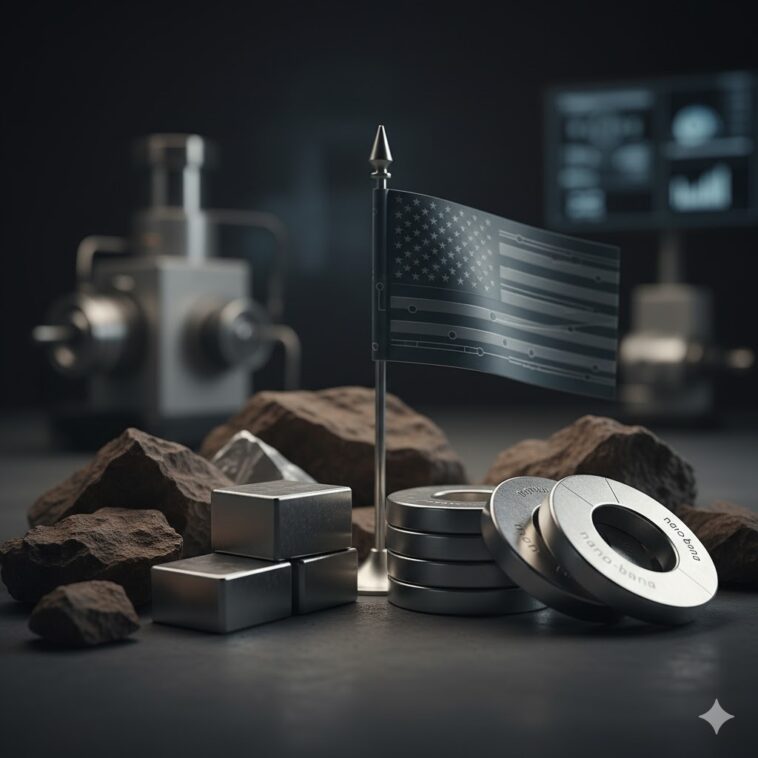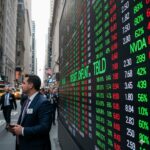A fresh volley of proposed export restrictions from Beijing, targeting everything from rare earth materials to advanced lithium batteries, sent tremors through global supply chains today, igniting a sharp rally in key U.S. and allied material stocks. The move, seen by many analysts as a strategic tightening ahead of a potential U.S.-China leadership summit, immediately put the spotlight on domestic producers, most notably MP Materials, whose shares rocketed up 7%.
The sudden surge in MP Materials stock followed BMO Capital Markets reinstating coverage, calling the company, fresh off a major Department of Defense partnership, the “U.S.’s undisputed rare earth champion.” The market’s reaction clearly signaled that geopolitical risk is fast becoming a major valuation driver for these strategic commodities.
“When Beijing starts playing the long game with its supply chain dominance, it’s an immediate tailwind for anyone outside of their direct sphere of influence,” commented Jane Arbuckle, a geopolitical trade strategist at the Hudson Group. “The China-U.S. dynamic is no longer about tariffs; it’s about controlling the essential building blocks of the modern economy. MP Materials is now trading on national security grounds as much as balance sheet fundamentals. You simply can’t ignore it.”
Lithium, Tech, and the AI Gold Rush
The materials frenzy wasn’t confined to the rare earth market. Shares of major lithium producers also climbed higher after China proposed requiring export licenses for certain lithium-ion battery types. Albemarle jumped 7%, while Lithium Americas added roughly 3%. For investors, the message was unmistakable: The world is de-risking from single-source supply, and that’s a boon for Western players.
In the tech sector, Oracle found a strong bid, rising over 3% after Baird initiated coverage with an Outperform rating and a hefty $365 price target. The thesis? Oracle, despite its reputation as an old-guard software player, has quietly carved out a strong position in the AI infrastructure build-out. After a turbulent few sessions marked by investor hand-wringing over its growth outlook, the stock’s weekly performance now clocks in at a solid 4% gain. It seems the market is starting to believe its AI narrative.
M&A Heats Up as Delta Soars
Corporate earnings and M&A also offered big swings. Perhaps the most compelling move was in biotech, where Akero Therapeutics shares surged nearly 17% on news of its acquisition by Danish pharma giant Novo Nordisk. The all-cash deal, valued at $4.7 billion (or $54 per share), is a high-stakes play by Novo Nordisk to bolster its pipeline for treating metabolic dysfunction-associated steatohepatitis (MASH). The market, however, took a dim view of the price tag, pushing Novo Nordisk’s shares down more than 1%.
Meanwhile, the travel sector finally caught a tailwind. Delta Air Lines jumped nearly 5% after posting Q3 results and guidance that handily beat analyst expectations, banking an adjusted profit of $1.71 per share on revenue of $15.2 billion. The strong report, a sign of sustained consumer demand, lifted the entire sector, with rival United Airlines also adding 3%.
Ferrari Trims Ambition While Tilray Ignites
Not every stock had a smooth flight. Luxury icon Ferrari tumbled 14% after trimming its ambitious electrification targets. The high-end automaker now expects a mere 20% of its 2030 lineup to be fully electric, a significant retreat from the prior 40% goal. The news suggests the practical challenges of transitioning a prestige brand to battery-power are far greater than management previously let on. It was a rare stumble for one of the market’s most consistent performers.
In a sector less dependent on macro-policy, Tilray Brands stole a slice of the limelight. The cannabis company’s shares popped roughly 24% after reporting a surprise fiscal first-quarter profit. The result underscores a simple, almost overlooked fact in a capital-intensive industry: when a cannabis firm finds a path to profitability, investors will jump on it.
The day’s trading underscored a market increasingly bifurcated by theme: geopolitical supply chain security for the materials stocks, relentless consumer demand for the airlines and beverage players like PepsiCo (up 3% on its own strong earnings), and a high-stakes M&A game in pharmaceuticals. As long as China continues to exert control over the world’s vital resources, the premium on domestic champions in rare earth materials will only continue to climb.



